Inside the OU – Summer 2022
Happenings Around the OU
Traveling Exhibit Revolutionizes Holocaust Education
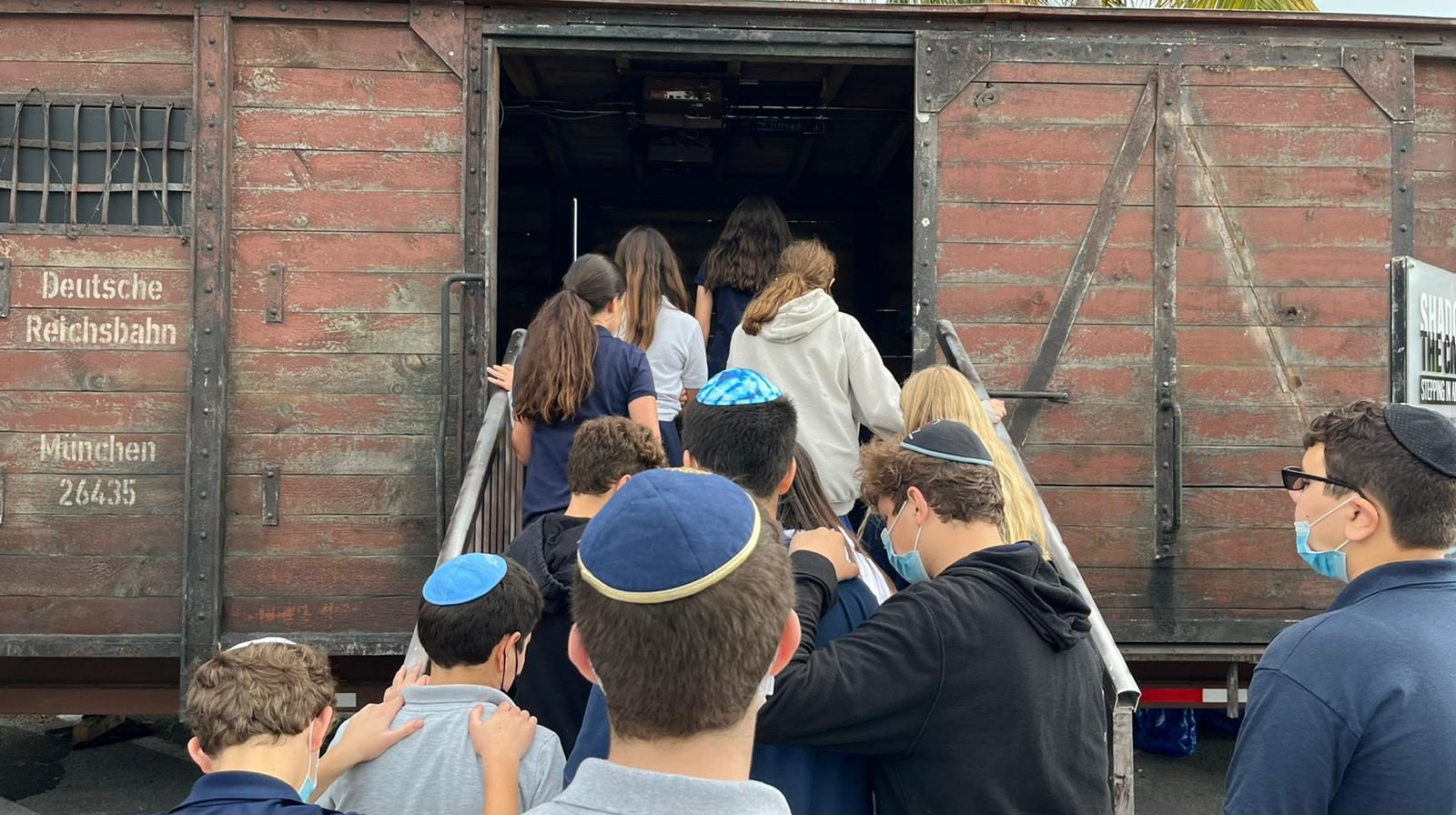
High schoolers from Hebrew Academy in Miami, Florida entering the Hate Ends Now cattle car exhibit in January. Courtesy of Lisa Dreyer
At a joint Southern NCSY and Teach Florida event in February, Florida Governor Ron DeSantis and sixty other legislators gathered in Tallahassee, Florida for a special viewing of Southern NCSY’s Hate Ends Now traveling exhibition, “The Cattle Car: Stepping In and Out of Darkness.” Set inside a restored Holocaust-era cattle car, this immersive exhibit showcases the development and aftermath of the Holocaust through a remarkable collection of imagery and footage dating from 1933 to 1945, including recordings of Holocaust survivors detailing their haunting, life-changing experiences. The exhibit concludes with present-day footage and images of discrimination and intolerance, tying in the rise of antisemitism being experienced today.
“You can talk about six million people who were killed —we all know that’s terrible. You can read it on a sheet of paper. But what does that actually mean?” said Governor DeSantis at the press conference following the experience. “When you see the tragedy, when you see videos and some of the artifacts . . . everyone that walks out of there is just speechless. It really gets you deep inside in ways that simply reading numbers off of a page won’t do.”
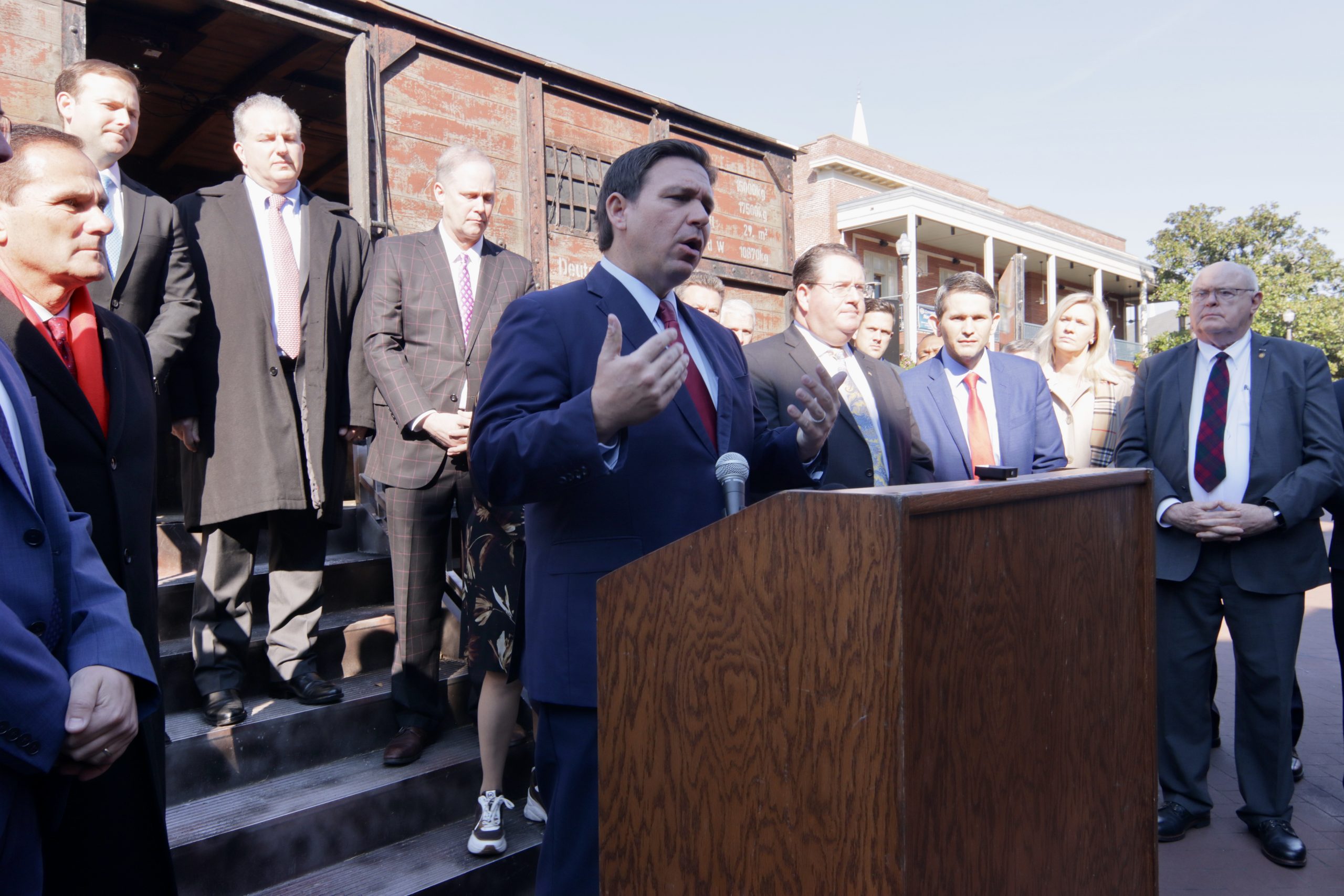
Florida Governor Ron DeSantis (at podium) and legislators speak with the press in February after viewing the Hate Ends Now cattle car exhibit. Photo: Menachem Kashananin/Craft Motion Films
Hate Ends Now is a partnership between Southern NCSY and ShadowLight, a nonprofit focused on Holocaust education and social justice. ShadowLight founder Jordana Lebowitz had originally pitched the exhibit to Southern NCSY as a ninety-day, short-term project. But since its launch in December 2021, Hate Ends Now has become a permanent part of Southern NCSY’s programming, with tours in Florida, the Carolinas and Georgia. The exhibit has been brought to stadiums, museums, Jewish campuses and high schools, as well as to universities and neighborhoods.
“Since its inception, the impact of Hate Ends Now has been extraordinary,” said Southern NCSY’s Chief Development Officer Solly Hess, who oversees the program. “Participants leave saying, ‘I had no idea,’ ‘How could this have happened?’ and ‘We must take a stand to ensure this never happens again.’”
To learn more about Hate Ends Now and to view the tour schedule, visit hateendsnow.org.
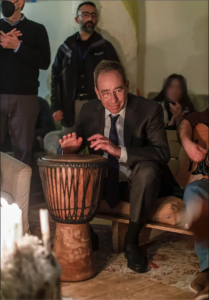
US Ambassador to Israel Thomas Nides drums on a darbuka during his visit to “the Zula” in February. Courtesy of OU Israel
US Ambassador Visits the Zula
This past February, US Ambassador to Israel Thomas Nides made a special visit to OU Israel’s The Pearl and Harold Jacobs Zula Outreach Center. A drop-in facility located near Zion Square in the center of Jerusalem, “the Zula” is intended to be a warm home for disadvantaged youth, mainly from religious families.
Ambassador Nides was greeted by OU Israel Executive Director Rabbi Avi Berman, who described the growth of the Zula over the past twenty-two years into a high-quality institution staffed by a professional team. Also joining the visit were OU Board of Directors Vice Chair Mr. Yehuda Neuberger, OU Israel Center Board of Directors Member Mr. Stuart Hershkowitz, and OU Advocacy Executive Director Nathan Diament, who facilitated Ambassador Nides’ visit.
“This is one cool place—it’s about kids, about youth, about support,” said Mr. Nides. “Thank you for doing what you’re doing.”
“This is not another guest; this is the ambassador of the United States who came to meet us. Wow! What an honor,” said one Zula participant.
“The ambassador was impressed by the deep connection between American Jewry and Israel and the work that is being carried out here thanks to the assistance of American Jews,” said Rabbi Berman. “We thank the ambassador for making the time for this special visit despite his busy schedule.”
Students Lobby for Nonpublic School Funding
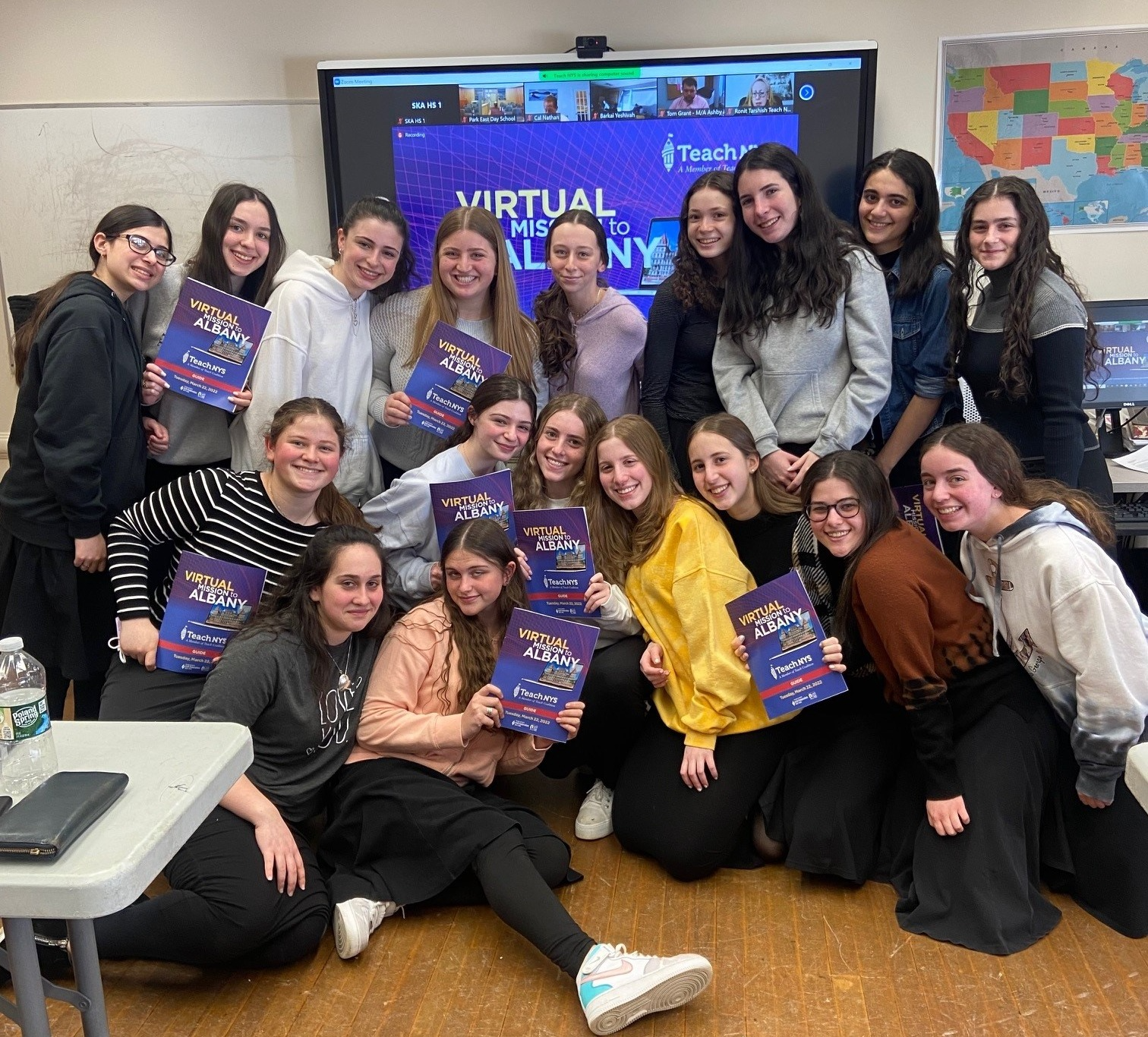
Students from SKA-Hebrew Academy in Long Beach prepare to meet legislators on the Teach NYS Virtual Mission to Albany in March. Courtesy of Teach NYS
In March, Teach NYS and Teach NJ held virtual missions to Albany and Trenton respectively to lobby state legislators to support equitable funding for nonpublic schools for STEM education and school security. Over 1,900 students and community and lay leaders collectively attended the two missions, bringing legislators together with students from a wide range of schools.
OU Executive Vice President Rabbi Moshe Hauer gave opening remarks at both missions. Teach NYS’s speakers included Governor Kathy Hochul, Senate Deputy Majority Leader Michael Gianaris and Senate Education Chair Shelley Mayer. Teach NJ’s speakers included Deputy Speaker Assemblyman Gary Schaer, Senate Education Chair Vin Gopal and Michigan Supreme Court Justice Richard Bernstein.
Following the presentations, students and lay leaders divided into small groups for individual advocacy sessions with their local legislators. Both Teach NYS and Teach NJ provided their participants with guidebooks that summarized each region’s goals and talking points, and three “Asks” to present in the small group sessions.
A project of the OU, Teach Coalition is a multi-state, grassroots movement devoted to advocating for nonpublic school funding and resources. This is the second year the annual missions have been held virtually.
Stepping Up Security Funding
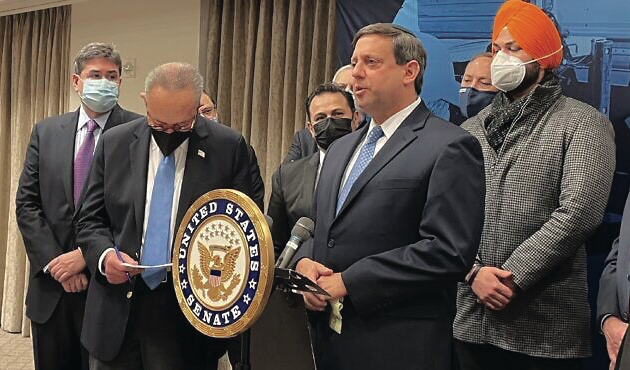
OU Advocacy Executive Director Nathan Diament (at podium) with Senate Majority Leader Chuck Schumer (second from left)) at a press conference in January calling for the NSGP funding to be increased. The push to increase the NSGP funding level also included a series of in-person meetings with key lawmakers as well as public advocacy, including op-eds published in the Hill, the Forward and other publications.
OU Advocacy applauded Congress’s passage of the omnibus appropriations package in March, which included several policy measures OU Advocacy worked on intensively with key Congressional allies. First was a much-needed increase for the Nonprofit Security Grant Program (NSGP) from $180 million to $250 million for fiscal year 2022 to help protect America’s synagogues and other houses of worship, as well as day schools and other nonprofits. This increase was of particular importance in the wake of the hostage-taking at a Colleyville, Texas synagogue in January—one of several major attacks in recent years against America’s Jewish community.
The appropriations bill also included a $1 billion provision to replenish Israel’s Iron Dome missile defense system to intercept rocket attacks by terrorist groups; and $13.6 billion in emergency aid to Ukraine and refugees escaping the Russian military’s assault.
“It is our duty and obligation as Jews to do all we can to ensure that we safeguard our community in America and around the world in this time of great need,” said OU President Mark (Moishe) Bane. “The provisions in this federal legislation will go a long way toward protecting our communities in the United States and in Israel and will provide relief to those suffering in Ukraine.”
Community Fair Draws Thousands Worldwide
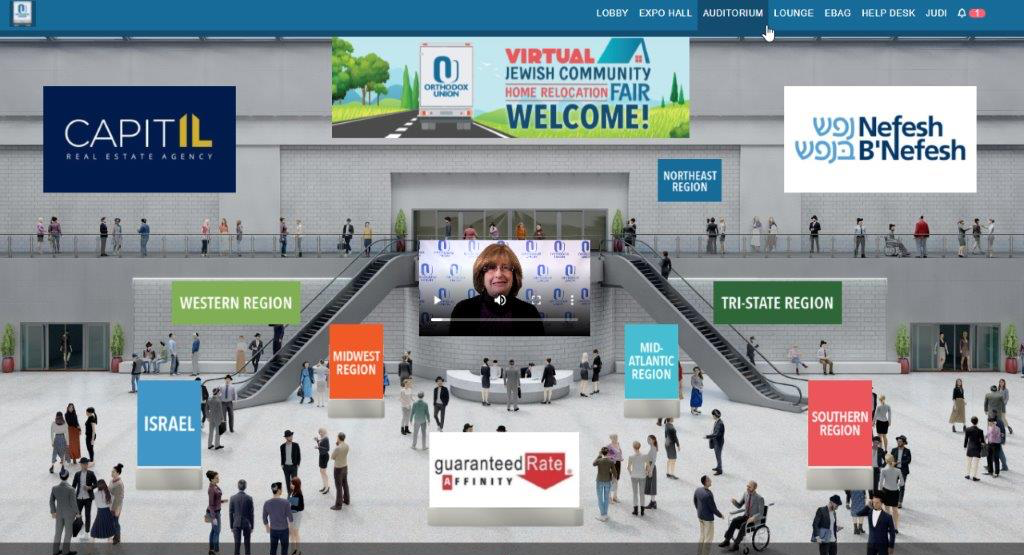
The fair’s virtual conference center featured an animated interactive lobby filled with avatars reflecting the broad spectrum of Orthodox Jews who generally attend. Signs linked to an expo hall showcasing over sixty Orthodox Jewish communities—seventeen of which were new this year—as well as to an auditorium for seminars spotlighting different communities throughout the day. The fair spanned ten hours, and visitors could log in and out as they pleased.
In February, for the first time in its fourteen-year history, the OU’s biannual Jewish Community Home Relocation Fair was held virtually, attracting an unprecedented 2,500 attendees, and exhibitors from thirty-five US states and eighteen countries—the largest fair to date.
“Past on-site fairs were held in New York City and attracted people from the New York Metropolitan area,” said Rebbetzin Judi Steinig, Senior Director of the OU’s Community Projects & Partnerships, who coordinates the event. “Going virtual made the fair accessible to so many who want to relocate.”
“A benefit was just to be able to reach more people that day,” said Rabbi Yonah Gross of Congregation Beth Hamedrosh, who was part of a team that’s been exhibiting the community of Penn Wynne, Philadelphia, at the fair for a number of years. “I had conversations with someone from Israel who wouldn’t have been able to attend the fair in person but had interest in our community.”
For more information about the communities that exhibited at the fair, or to order the 2022 Orthodox Jewish Community Guide, visit ou.org/fair.
Promotions and Achievements
Welcome to…
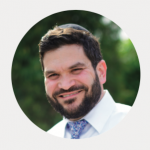 . . . Rabbi Moshe Brandsdorfer, Executive Director of Torah Initiatives. In his new role, Rabbi Brandsdorfer will join Rabbi Jack Abramowitz, Rabbi Elyada Goldwicht and Rabbi Moshe Schwed to strengthen the many existing Torah Initiatives programs, as well as to broaden its horizons to provide engaging and meaningful Torah content to Jews across the world. Rabbi Brandsdorfer most recently worked at the Jewish Community Council of the Rockaway Peninsula, where he served as Executive Director for five years. Rabbi Brandsdorfer was a talmid of Sh’or Yoshuv in Lawrence, New York for four years; received his bachelor’s from Brooklyn College; and completed management and business courses at Boston University, Columbia University’s School of Business and Notre Dame.
. . . Rabbi Moshe Brandsdorfer, Executive Director of Torah Initiatives. In his new role, Rabbi Brandsdorfer will join Rabbi Jack Abramowitz, Rabbi Elyada Goldwicht and Rabbi Moshe Schwed to strengthen the many existing Torah Initiatives programs, as well as to broaden its horizons to provide engaging and meaningful Torah content to Jews across the world. Rabbi Brandsdorfer most recently worked at the Jewish Community Council of the Rockaway Peninsula, where he served as Executive Director for five years. Rabbi Brandsdorfer was a talmid of Sh’or Yoshuv in Lawrence, New York for four years; received his bachelor’s from Brooklyn College; and completed management and business courses at Boston University, Columbia University’s School of Business and Notre Dame.
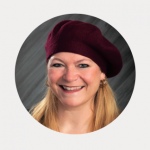 . . . Roslyn (“Roz”) Beberman, Major Gifts Officer for Institutional Advancement, East Coast. Roz will be engaging current and prospective donors to secure resources for the OU. Her focus will include support for all OU departments; the Benefactor Circle; and OU Membership. Roz previously worked at Rutgers University, her alma mater, where she spent fourteen years in fundraising and development. She is excited to meet with all interested champions of the OU, with a focus on Northern New Jersey and Westchester counties.
. . . Roslyn (“Roz”) Beberman, Major Gifts Officer for Institutional Advancement, East Coast. Roz will be engaging current and prospective donors to secure resources for the OU. Her focus will include support for all OU departments; the Benefactor Circle; and OU Membership. Roz previously worked at Rutgers University, her alma mater, where she spent fourteen years in fundraising and development. She is excited to meet with all interested champions of the OU, with a focus on Northern New Jersey and Westchester counties.
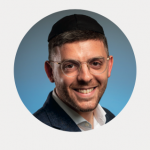 . . . Rabbi Mikey Albala, Chief Development Officer, New York NCSY. Rabbi Albala will be overseeing all of New York NCSY’s fundraising efforts and working to increase NCSY’s impact and imprint in the communities it services. Having begun his nonprofit career at NCSY sixteen years ago, Rabbi Albala returns to NCSY as an experienced fundraiser, having most recently served as Director of Institutional Advancement for Chai Lifeline. He has also served as Director of Strategic Growth at Rofeh Cholim Cancer Society (RCCS).
. . . Rabbi Mikey Albala, Chief Development Officer, New York NCSY. Rabbi Albala will be overseeing all of New York NCSY’s fundraising efforts and working to increase NCSY’s impact and imprint in the communities it services. Having begun his nonprofit career at NCSY sixteen years ago, Rabbi Albala returns to NCSY as an experienced fundraiser, having most recently served as Director of Institutional Advancement for Chai Lifeline. He has also served as Director of Strategic Growth at Rofeh Cholim Cancer Society (RCCS).
Congratulations to…
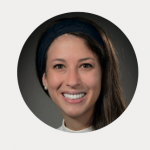 . . . Jenna Beltser, Director of the OU Impact Accelerator, on being named to the Detroit Jewish News “36 Under 36,” an annual list of young Jewish professionals in the Metro Detroit area who are making an impact on the Jewish world. As the founding director of the department, Jenna designed the curriculum and the program’s cohort system, which provides six nonprofit startups annually with leadership training and mentorship. This honor also recognizes the significant impression that the Impact Accelerator has had on Jewish communal life since its founding three years ago.
. . . Jenna Beltser, Director of the OU Impact Accelerator, on being named to the Detroit Jewish News “36 Under 36,” an annual list of young Jewish professionals in the Metro Detroit area who are making an impact on the Jewish world. As the founding director of the department, Jenna designed the curriculum and the program’s cohort system, which provides six nonprofit startups annually with leadership training and mentorship. This honor also recognizes the significant impression that the Impact Accelerator has had on Jewish communal life since its founding three years ago.
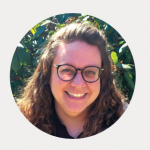 . . . Dena Cooperman, on her promotion to Executive Director of the Jewish Union Foundation (JUF) in New York. JUF is a division of Yachad that operates state-run services. In this role, Dena will oversee all aspects of JUF programmatically and administratively. She has worked with Yachad and JUF for the past thirteen years in multiple roles, most recently as program supervisor of all programmatic areas of JUF, including its adult day programming and vocational services.
. . . Dena Cooperman, on her promotion to Executive Director of the Jewish Union Foundation (JUF) in New York. JUF is a division of Yachad that operates state-run services. In this role, Dena will oversee all aspects of JUF programmatically and administratively. She has worked with Yachad and JUF for the past thirteen years in multiple roles, most recently as program supervisor of all programmatic areas of JUF, including its adult day programming and vocational services.
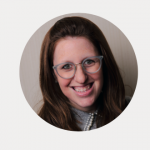 . . . Raquel (“Rocky”) Selevan, on her promotion to Director of Yachad New Jersey and Executive Director of JUF in New Jersey. In this role, Raquel will oversee the adult day services program in New Jersey, and is excited to work with the team to enhance the program curriculum, further program growth and help create more jobs for Yachad’s vocational program participants. Prior to joining the OU, Rocky worked at Manhattan Day School, the NYU Child Study Center and as Assistant Director of Camp Shoshanim.
. . . Raquel (“Rocky”) Selevan, on her promotion to Director of Yachad New Jersey and Executive Director of JUF in New Jersey. In this role, Raquel will oversee the adult day services program in New Jersey, and is excited to work with the team to enhance the program curriculum, further program growth and help create more jobs for Yachad’s vocational program participants. Prior to joining the OU, Rocky worked at Manhattan Day School, the NYU Child Study Center and as Assistant Director of Camp Shoshanim.
New from OU Press
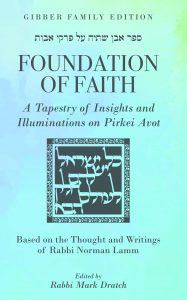 The following is excerpted from:
The following is excerpted from:
Foundation of Faith: A Tapestry of Insights and Illuminations on Pirkei Avot Based on the Thought and Writings of Rabbi Norman Lamm
Edited by Rabbi Mark Dratch
OU Press
Gemilut Hasadim
Hesed means love. The word gemilut comes from the word gamal which normally means maturity, weaning, coming to fruition—as in the verse vayigmol shekeidim or vayigamel Yitzhak. Hesed alone is pretty, but such love that is inconsequential remains childish. However, when it is expressed in deeds, in behavior, in conduct, in acts of kindness and gentleness, of help and compassion, of charity and pity and sharing—then it is gamal, it is mature, and we have gemilut Hasadim. All of us are possessed of the quality of Hesed or love. But each of us is charged with gamal, with growing up and up and up and up—so that our Hesed matures as gemilut Hasadim.
Hesed
When we say in our Shemoneh Esreh that we praise G-d Who is Elokei Avraham, Elokei Yitzhak, ve’Elokei Ya’akov—the G-d of Abraham and of Isaac and of Jacob—we are offering, according to the Kotzker Rebbe, a symbolic affirmation of the Mishnah which tells us that the world rests on the three great principles of the study of Torah, of service, and of the doing of good deeds. These represent, in reverse order, Abraham and Isaac and Jacob. Yet, and this is the climax of the blessing according to the interpretation of the Kotzker, the greatest of all these qualities, the most preeminent of these three sublime Jewish principles, the one which alone can lead us out of exile into geulah and is therefore the most redemptive of all, is gemilut Hasadim, the doing of good deeds, the act of Hesed, symbolized by Abraham.
Thus, when the Rabbis (Talmud, Pesahim 117b, interpreting the verse, “And I will make of you a great nation, and I will bless you, and make your name great, and you shall be a blessing“) quote G-d as saying to Abraham bekha hotmin, that only he, Abraham, would be present in the seal of the blessing, they meant that good deeds of kindness are superior to study and to prayer (service) as Jewish qualities. Hence, when we bless G-d Who is “magen Avraham, the Shield of Abraham,” we affirm in the form of prayer that Hesed is greater than study or prayer.
To assert that gemilut Hasadim is accorded greater value in the Jewish tradition than either Torah or avodah is to violate the spirit of the Mishnah which tells us clearly that the world rests on three principles, a statement which implies the equality of all three values. A world, like a tripod table, is unstable and wobbly if one leg is longer than the other two. I would therefore venture the following modification of the Kotzker’s interpretation of the Talmudic passage. All three values are equal in essence, in content. However—and this is the whole point of the Agadah—each of these three must be expressed and effectuated in a manner of Hesed. It is possible to practice Torah and avodah and gemilut Hasadim in a manner that is crude and undistinguished and ungracious; and it is possible to endow the same three acts with the seal of Hesed, with love and with warmth.
When, therefore, we mention only the name of Abraham in the seal of the blessing, as magen Avraham, what we are saying is that all three qualities, represented by the three patriarchs, must find their final form or expression, their Hatimah or seal, in the manner symbolized by Abraham: Hesed.
Ahavat Yisrael
The late saintly Kapishnitzer Rebbe, zt”l, put it beautifully when he said that if you love a fellow Jew because he is learned, that is an act of the love of scholars. If you love him because he supports the Torah, you have fulfilled the requirement of the love of Torah. If your love issues from admiration of his or her charitableness, that is a case of the love of tzedakah. But if you love a Jew who is neither scholarly nor a supporter of Torah nor a person of charity—that is ahavat Yisrael!
